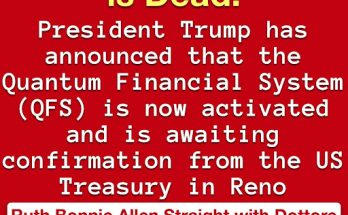In the Spotlight

Published August 30, 2022
From Slay News
The Arizona Supreme Court has ruled against a George Soros-funded effort to block the state’s election integrity measures.
Radical billionaire Soros has been funding Proposition 210 — a ballot initiative to undo Arizona’s new election integrity law.
However, the state’s highest court ruled that the proposition cannot be on the November ballot due to a lack of valid signatures.
Arizona is one of the states that, in the aftermath of the 2020 presidential race, decided to put measures in place to increase public confidence in election results.
The state introduced statutory reforms to make it easy to vote but hard to cheat.
Under the Arizona Constitution, laws passed by elected legislatures can be overridden by ballot initiatives.
Many of these initiatives impose measures that lawmakers reject after careful consideration.
One such example of a left-wing initiative was Arizona’s forced taxpayer funding of political campaigns, which the U.S. Supreme Court struck down as an unconstitutional violation of the First Amendment in Arizona Free Enterprise Club’s Freedom Club PAC v. Bennett (2011).
Soros largely funded the latest effort to override the elected legislature in the Grand Canyon State.
His Open Society Foundation joined forces with another activist group called Way to Win.
Way to Win claims credit for Democrat victories in 2020.
The two organizations funded a ballot initiative through a left-wing group with the euphemistic name: Arizonans for Free and Fair Elections.
The well-financed activists submitted over 475,000 signatures.
Conservatives challenged the validity of these signatures, however.
After a round of litigation, the Arizona Supreme Court sent the matter back to a Maricopa County judge for a final assessment.
The trial judge held last week that the organizers had barely met the necessary 239,926 signatures, clearing that hurdle by only a couple thousand votes.
But on appeal again to the Arizona Supreme Court, the justices held on Thursday that they were “unable to verify the validity rate used by the trial court” and ordered the trial judge to explain his calculation by midday Friday.
When the trial judge failed to justify his calculations, the Arizona Supreme Court concluded that the ballot initiative did not have enough legal signatures to proceed to November’s election.
The successful challenge to the Soros-backed initiative was a coalition effort.
The lawsuit was filed by Scot Mussi, president of the Arizona Free Enterprise Club — the same organization that won a U.S. Supreme Court victory against another election ballot initiative in 2011.
Mussi was supported in his efforts by Jason Snead of the Honest Elections Project, Jessica Anderson of Heritage Action, and other election integrity proponents like Blackwell and former Virginia Attorney General Ken Cuccinelli.
Had it succeeded, the Soros-backed measure would have repealed Arizona’s election integrity laws for the 2024 presidential election.




